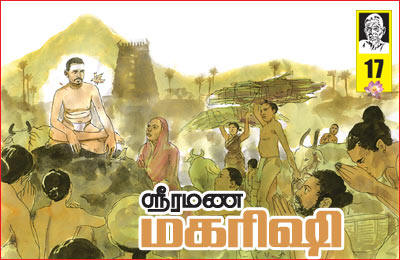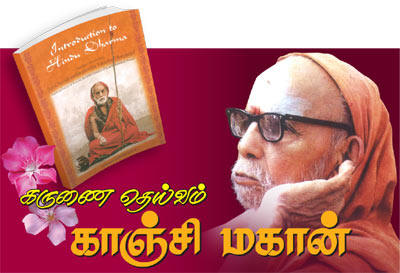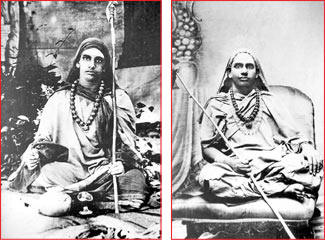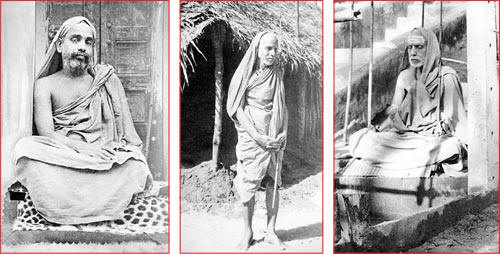17Ramanamaharishi20101130.html
Sri Ramanamaharishi. Who am
I?
Sakthi Vikatan
2010-11-30-part1-2
![]()
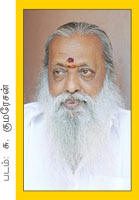 Only
one year was left for the birth of 20th century. The world
will witness many wars. Men would die like insects. Famine and natural
disasters will make the world suffer.
Only
one year was left for the birth of 20th century. The world
will witness many wars. Men would die like insects. Famine and natural
disasters will make the world suffer.
At the start of the 20th century, Bālaswāmy,
the future Ramanamaharishi,
abandoned the Pavaḷak Kuṉṛai mountain cave and moved into Virūpāṣi cave.
The south side of Tiruvannamalai had many caves. One was called Virūpāṣi
cave. A Vīraśaiva Thēvar, an ascetic from Karnataka lived in that cave
and hence the cave was called by its eponymous name, Virūpāṣi cave. As
Bālaswāmy moved into the cave, so did Pazhaṉisāmi (Balaswamy's personal
caretaker).
Pazhaṉisāmi, went down to the town for receiving alms, which both shared
(and ate). As days went by, the visiting crowd got bigger. They went up
the mountain, sat before Bālaswāmy, talked with him for a while and
cleared their doubts. A few people ate the food they brought, obtained
Swamy-Darśan, felt a sense of freshness and left for home with a sense
of spiritual gratification.
Those who experienced such rejuvenation and exhilaration came back for
more. Asking no questions,
opposing their palms in homage to Balaswamy, paying obsequious
salutation, they moved to a side and just intently eyed him. They
experienced a sense of peace in that environment. They brought their
close friends. By word of mouth, the crowd swelled. It dawned on
Balaswamy to feed the visitors. Pazhaṉisāmi went on seeking alms and
shared the food with the visitors. The food was aplenty for sharing with
them.
People: Āhā, how wondrous is this? No one celebrated it.
Neither they were indifferent to the wondrous events. They
enjoyed all the facilities in the place where a Jñāni lived. The mind
liable for entanglements and destructive tendencies, became free slowly
and began to examine the life problems; getting two mouthfuls of food
there was easy. They received food. Darśan of Balaswamy, they got.
Love blossomed in all the visitors.
People are different. The crowds are larger during Kārttikai (Mid-Nov to
Mid-Dec) Lamp Festival. One entrepreneur drew up a list of the mountain
caves and their occupants and collected money from mountain-climbing and
cave-popping pilgrims to facilitate Darśan of Bālaswāmy. He claimed he
was the owner of Virūpāṣi cave. He behaved as if he had the hereditary
right to collect entrance fees. The devotees paid a quarter Aṇā (64 parts to a Rupee) received Darśan of Bālaswāmy with utmost
devotion and left for home. Some visitors demanded to have Bālaswāmy
come out of the cave to redeem the full value for the money they paid.
This gave Bālaswāmy some distress.
Balaswamy: Just because I was in the cave, he collected entrance fee. He
came out of the cave and sat under a tree. The fake owner still
collected his fee. Balaswamy did not want to threaten or oppose him.
Since he was asking for Virūpāṣi cave fees, Balaswamy went down the
mountain from his cave and occupied the Cave Namasivayam. The crowd
turned away from the mountain cave. No one came to Virūpāṣi cave.
Realizing his mistake, he ran to Balaswamy, fell prostrate at his feet,
promised him he will collect no fees and Balaswamy could return to the
cave in the mountain.
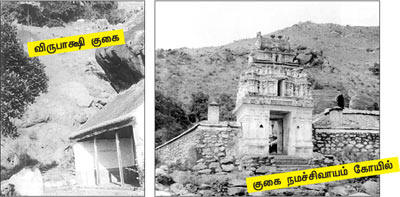 ‘You did such a thing! Did you get your sense back?’ Bālaswāmy did not
crow. ‘Is that so? Will you not collect fees from now on?’ So saying, he
came back to Virūpāṣi cave. That is the sign of a Jñāni.
‘You did such a thing! Did you get your sense back?’ Bālaswāmy did not
crow. ‘Is that so? Will you not collect fees from now on?’ So saying, he
came back to Virūpāṣi cave. That is the sign of a Jñāni.
He did not have the arrogance that he taught a lesson to an usurper. ‘You collect
fees; I move out. You stopped collecting fees; I move back in the cave.’
Bālaswāmy did not have even a germ of hubris in him and remained a
person with lofty ideals.
From 1899 to 1922 he lived for 23 years in multiple caves in the south
side of Tiruvannamalai.
Forced by circumstances, his life ended here. His (sun-like) effulgence
and moon-like coolness were telling. His loving fans were of clear mind.
They held conversations with him. They knew what to ask. They sat with
him for some time and gradually asked him questions. They brought
spiritual books, made him read and questioned him with a view to expand
their own knowledge.
He could explain abstruse Tattvas in a clear simple layman's language for easy
understanding. He never debated on a stage. He never delivered sermons
in a circumferential long-winded speech. Many times, his presence,
looks…were the answers to questions. Many devotees understood matters
without a spoken word in his shrine.
Śivapprakāsam
Pillai to have a good impress of Ramana’s speeches on his mind and for
the benefit of others including Ramana’s readers, held written question
and answer sessions. No sooner he asked the questions, the answers came
down like glistening pearls. A long article was written to answer the
eternal question, ‘Who am I?’ Sivaprakasam’s long article on ‘Who am I?’
based on Balaswamy’s thoughts and
words, was rendered as question and answer presentation.
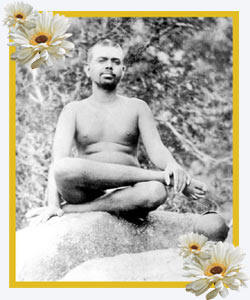 Bālaswāmy’s
life events as in this series of articles by me (Balakumaran) will stop.
Hereafter, the opinions of devotees and disciples will be in print. The
perceptions of the interlocutors, the changes, wondrous in themselves
waiting to be told, events and inquiry into Tattvas will follow.
Bālaswāmy’s
life events as in this series of articles by me (Balakumaran) will stop.
Hereafter, the opinions of devotees and disciples will be in print. The
perceptions of the interlocutors, the changes, wondrous in themselves
waiting to be told, events and inquiry into Tattvas will follow.
Bhagavan Ramana Maharishi, the erstwhile Bālaswāmy, led no life of a king.
It is not battles, invasions, ocean voyage and yearlong new endeavors.
There is peace and stability; there is no movement; there is no
agitation: that is the mountain named Ramanamaharishi.
Hereafter, the herbal wind blowing from the mountain will appear
as life events of Bhagavan.
All beings want happiness. Each life loves self. That desire is
happiness, which the mind enjoys during sleep. It involutes and serves
as its own witness. It awakens with happiness and satiety and slept
well. In the awake state, involution into oneself (avoiding the mad rush
of the external world) and self-knowledge must take place.
Ask yourself ‘Who am I?’ and find the answer in yourself. That is the
easy way. Are you the body? Where was the body, when you slept? Where
was the awareness of the body? Something slept, something involuted
inside; body awareness was not present, or forgotten.
Under this premise, ‘I’ is not the body.
The respective experiences by the sensory organs, because of the
memory power of the brain, constitute the mind: Is that mind, the ‘I?’
What can the mind do? It thinks of something. The mind experiences
dreams during Dream Sleep. It does fighting. It is happy. It goes up; it
goes down. It wanders. All Dream Reveries. But, wasn’t there a time
spent in Dreamless Sleep? We say, the dreamless sleep is good sleep; we
slept with great joy. That being so, the restless mind during the awake
period and in the dream sleep are not the ‘I’ but something else: What
is that?
Not knowing, the ‘I,’ who stands there? Is that the ‘I.’ No. It is not
the ‘you.’ That is not it. I am not this.
‘I’…whatever you think as ‘I’ is shoved off and whatever you
cannot shove off with the remaining leftover remnant is ‘I.’
Your intellect and experience help you perceive this world. You conclude
what is good and what is evil in this world.
Yet, you don’t perceive the Truth. In any matter, its truth and
its power are incomprehensible to you (because they are hidden from
you).
For example, in the night you see a rope, mistake it for a snake and run
away in fear. Your soul-friend helps restore calm in you and picks up
the rope to show its innocuous nature to you; in your mind the snake
disappears, cognition of the rope takes place and peace prevails in your
mind. All were your imagination.
When history of Bhagavan Ramanamaharishi is written, there is no gain in
describing the linked events. SriRamanar’s enquiry is titled ‘Who am I?’
Elucidating it is knowing SrīRamaṇa.
|
-
தரிசிப்போம்...
-Let us get Darśan. |
|
30
Nov, 2010
2010-11-30-part2
Kanchi Mahan is God of Mercy.
Michael Oren Fitzgerald served as a professor in America’s Indiana
University. He has written 12 books on world’s many religions. They
received many accolades. His eight books and two short films are used
even today in American Universities.
Recently, he published, ‘Introduction to Hindu Dharma’. He said, “I
translated all talks of Kanchi Mahāperiyava into English amounting to
6,500 pages and wrote this book.”
Over 70 years, kings, ministers, the street sweepers… sat before Kanchi
Muṉivar
and enjoyed hearing his words of wisdom. At his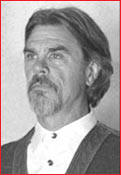 camp sites, he took a topic and elucidated and explained it. People
belonging to multiple sects (and religions) sat at his holy feet and
made their time well spent. People considered learning Hindu Dharma
through the 20th century’s greatest Jñāni Kanchi Swāmigaḷ. It
is easy to know, Darśan of Kānchimahān
helps visitors’ spiritual perception and feelings rise and effervesce.
In this book, we published Mahān’s
photos enhanced by modern professional photo-editing techniques. Michael
tells with great pride, “For the devotees of Mahāperiyava, this will be
a treasure trove.”
camp sites, he took a topic and elucidated and explained it. People
belonging to multiple sects (and religions) sat at his holy feet and
made their time well spent. People considered learning Hindu Dharma
through the 20th century’s greatest Jñāni Kanchi Swāmigaḷ. It
is easy to know, Darśan of Kānchimahān
helps visitors’ spiritual perception and feelings rise and effervesce.
In this book, we published Mahān’s
photos enhanced by modern professional photo-editing techniques. Michael
tells with great pride, “For the devotees of Mahāperiyava, this will be
a treasure trove.”
It is not a simple matter when Periyavar compiled over 15 topics of his
lectures in a concise and clear manner.
All right… Shall we delve into his books?
Periyavāḷ
explicates the control of the mind under the general section, ‘Dharma,
common to all.’
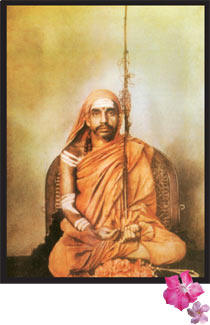 “What
stands opposed to a single-pointed thought or Dhyāṉa? Agitated mind.
Desires arise in the mind and cause problems.
Abandoning desires and controlling the mind are not easy.
You can close the mouth and the eyes.
But, just tell the mind not to entertain any thoughts. It won’t
listen.
“What
stands opposed to a single-pointed thought or Dhyāṉa? Agitated mind.
Desires arise in the mind and cause problems.
Abandoning desires and controlling the mind are not easy.
You can close the mouth and the eyes.
But, just tell the mind not to entertain any thoughts. It won’t
listen.
There are two ways to control the mind:
Antaraṅgam
and
Bahiraṅgam.
Niyama
= Ethical rules: restraint,
vow; self-imposed [religious] observance,
and
Yama
= Morality, Self-restraint and observance.
Antaraṅgam
= Inner impulses of virtuous nature. Bahiraṅgam
= Outer impulses of virtuous nature. In
Bahiraṅgam,
Ahimsa (non-injury), Satyam (Truth), Asthēyam
(Non-stealing), Svaccham (Purity), Indriya Nigraha (Control of senses).
Periyava explains clearly god worship with the presentation of
Antaraṅgam and Bahiraṅgam.
“All religions accept God as the creator of the world. He is the
grace-giving savior. A question may arise, “Having created the world
according to his will and protecting it by his desire, why should we
extend our worship to him? Patanjali gives the answer in Yoga Sutra.
Prayer’s purpose should not be for fruits, boons and benefits. The
all-pervasive God knows what our needs are. To think he is waiting for
our eulogies is a mistake. He is not ordinary like we are. If he is,
where is the need for incantation and supplication?
The creator knows he is resident in our mind (and soul).
If we do not do supplication and incantation, that makes our mind
and soul feel deceitful. If we engage in incantation, the knot of deceit
will leave and our mind will be in peace. Incantation and supplication
will not change what God has in store for us. We do it for the
purification of the mind. Tiruvalluvar says, ‘If we do not resort to the
feet of the incomparable Lord, it is rare (difficult) to shed the mental
agony.’ The thought and devotion that God exits is the knowledge that
will cleanse our thoughts.
Of all Dharmas, the loftiest is Ahimsa (non-injury). Jaina and Buddhist
religions say that Total Ahimsa should be our practice. In Hinduism,
there are exceptions. Animals sacrifice and killing the enemies are
accepted practice. The military hero losing life for the country in the
battlefield is better than doing nothing and sitting on our fat rear
ends. Pursuing misplaced Ahimsa all over the world in a mindless
perverse fashion causes many problems. It is hard always to practice
Ahimsa by all. Therefore, the heretics fall into the category of
sinners. Periyava comments on the practical man, ‘our religion takes a
practical approach (with regards to Ahimsa).’
It is a common practice in speech and writing to point out the mistakes
and exaggerate them. The more educated, one is, more is his enthusiasm
to fault-finding. Fault finding is the job of person with a faulty
knowledge. Who is he? He is the fault-finder and exaggerator engaged in
finding faults in others. If one has faults, tell him the faults in a
friendly manner. He can correct himself. It is improper to spread the
news.
Bhagavan Krishna says in Bhagavadgita, ‘Desire and anger induce one to
commit sin. If the desire is excessive on an object, there is no
hesitation to getting it by hook or crook. If it is not attainable, we
get angry towards the obstructionist.
Unfulfilled desire becomes anger.
The object of human birth is to live to shower love on others. There is
no greater joy than loving others. When we love others, the joy pervades
us and heightens our mood. The life without love of other is useless.
True love has no reason, and no motive. If you pose a question, ‘is
there anyone like that?’ there is one. He is God, the Inner Abider.
Mahāperiyava declares, “That is God; In Him only there is plenitudinous
love.”
The saying of Periyava, ‘Dharma only is a savior,’ is applicable to any
individual person. No religion declares, “we can conduct ourselves
according to our likes and dislikes.” No religion says, we should
accumulate wealth and property for our own use. He lives for himself, if
one thinks only he is important (the center of the universe). That is
why all religions espouse the principle of ‘Inner Abider.’ They declare
one should destroy the ego. ‘O child, you are nothing before the Māyāsakti.’
That Sakti only gave you the intellect. Helped by the intellect, one
should follow the path of Dharma. Seek the help of Sakti and hold on to
it (her) for your life depends on her.
Jñāṉa
(wisdom) makes a true man and elevates him from the position of an
animal. All religions hold the hope to elevate man to a divine status.
The methods may be different among religions in that effort. Their
concern is to prevent man from being entangled in the net of desire and
anger and instead cultivate love, modesty (humility), peace and selfless
service in him. This is what Periyava says in reference with Hindu
Religion. (This is a
Tantric portrayal of stages of man: Paśu-animal; Vīra-Hero;
Divya-Devine.)
There was no name initially for Hinduism. Our ancient sacred texts have
no mention of ‘Hindu Religion.’ The foreigners called us ‘Hindus.’ The
foreigners crossing the River Sindhu named it ‘Indus’ and ‘Hint.’ The
land beyond the river was named ‘India.’ The native inhabitants were
called ‘Hindus.’ Other religions excepting Hinduism were created by
individuals: Buddhism by The Buddha; Jainism by Mahāvīrar;
Christianity by Jesus Christ… Long before the birth of these religions,
our religion was the only existing religion and found no need for a
name.
Who created this ageless religion called Hinduism? Vyāsar?
Kṛṣṇar?
Both say Vedas predate them.
Does that mean whether Jñānis and Ṛṣis gave us Veda Mantras? They
state they were not the formulators of Vedas, Mantras… but were the
medium through whom they (Vedas, Mantras…) were revealed. When they
controlled the minds and meditated, Vedas, Mantras… appeared on the
outer regions. All sounds originate in the outer regions. Therefrom,
creation took place. It is the power of Ṛṣis that made the Mantras
reveal themselves. That is the view of Periyava.
Michael Oren Fitzgerald has compiled in detail Periyava’s own words with
English translation of Sanskrit words and phrases: Upanishad, Brahma
Sutras, Veda-Vedāntams,
Pantheon of gods, Dharma Sastras, rights and responsibilities, 40
Saṃskāras, Duty of Brahmacharin, Gayatri-Sandhyāvandhana
Mantras, rights of women, conduct of marriage on a budget…
It appears page after page in his careful presentation of Periyava’s
spiritual instructions, a clarity of expression intended for easy
understanding by the readers. Some photos of Periyava are rare in the
book, a must-have in every Periyava’s devotee’s home.
-Darśan will continue
